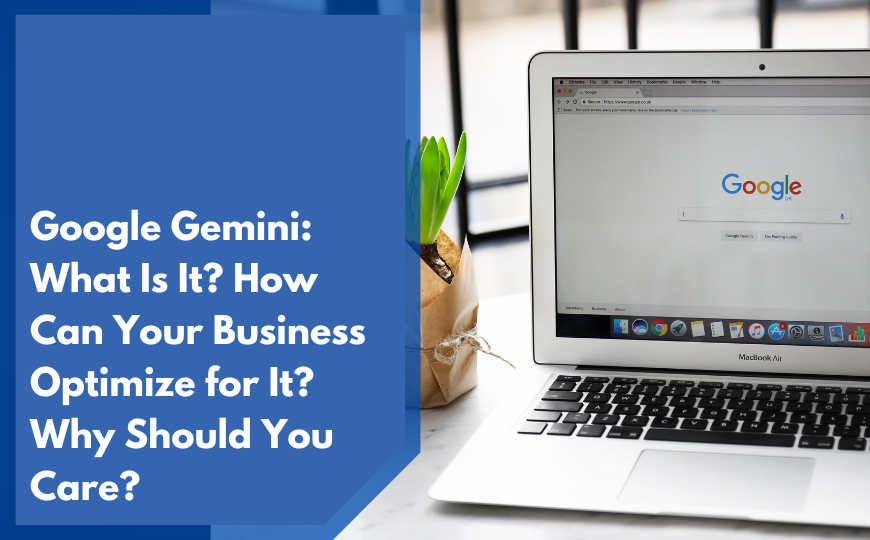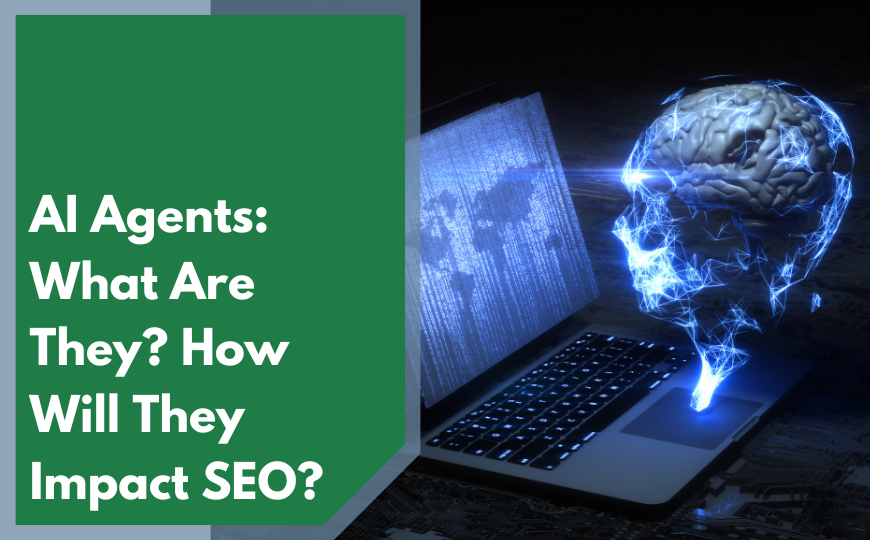Google Gemini is a multimodal AI model developed by Google DeepMind that is being integrated into Google’s Search Generative Experience (SGE), transforming how search results are generated and delivered. It goes beyond traditional ranking algorithms by incorporating machine learning, natural language understanding, and predictive analysis to generate search results.
So what? For your business, this shift means that it’s time to rethink your SEO strategies to remain visible in an AI-first world.
To be clear, the fundamental tactics of traditional SEO tactics still matter, but Google Gemini demands a new level of optimization. It prioritizes semantic understanding, user intent, and content structure over outdated keyword-stuffing techniques. If your business fails to optimize for AI-powered search, you risk losing traffic to competitors that do.
How Does Google Gemini Work?
While not a direct replacement for previous algorithms, Google Gemini represents a significant evolution in how AI contributes to generating search results, especially within SGE. Unlike previous Google algorithms, which focused primarily on backlinks and keyword relevance, Gemini uses deep learning models to analyze content contextually.
Instead of relying on static ranking factors, Gemini applies predictive AI models to assess how well content meets a user’s needs before displaying search results. It evaluates search queries dynamically, predicting intent and providing direct answers instead of a simple list of links.
Additionally, Google Gemini integrates with Google’s Search Generative Experience (SGE), pulling information from multiple sources and generating conversational, AI-driven answers. This reduces reliance on traditional organic search rankings and makes content clarity, structure, and authority more important than ever.
How Can You Optimize for Google Gemini?
1. Focus on Semantic SEO and Topic Clusters
Google Gemini prioritizes topic relevance over isolated keywords. Start your preparation by shifting your focus to semantic SEO, where content is structured around comprehensive topic clusters rather than individual search terms.
Instead of creating standalone blog posts optimized for single keywords, develop pillar content that covers broad topics with interlinked supporting pages covering subtopics. This helps Google Gemini recognize your website as an authoritative source on a given subject.
To implement this strategy effectively:
- Identify high-value industry topics that align with search intent.
- Develop pillar pages that provide a broad, in-depth analysis of a topic.
- Create supporting pages that explore related subtopics, all internally linked to reinforce content relationships.
- Optimize internal linking to help Gemini map the hierarchy of your content.
Additionally, ensure that your content is regularly updated to remain relevant. AI-powered search engines prioritize fresh, well-maintained content over outdated pages. Keeping topic clusters dynamic with new insights, industry trends, and updated data will help maintain your authority in search rankings.
2. Optimize for AI-Generated Snippets & Summarization
Google’s SGE, powered in part by Gemini, generates AI-based summaries and snapshots by synthesizing information from trusted web sources.
To increase the chances of appearing in AI-generated summaries:
- Use clear subheadings (H2s and H3s) to organize content logically.
- Provide direct, concise answers in the first paragraph of each section.
- Structure content in Q&A format for better snippet extraction.
- Use schema markup (FAQ, How-To, Article) to enhance AI comprehension.
- Include bullet points or numbered lists to improve readability for AI parsing.
Another way to optimize for Google Gemini is by ensuring that your content aligns with conversational search queries. AI-driven search engines prioritize responses that mimic natural human speech, so use long-tail, conversational keywords and write in a way that directly answers user questions.
3. Structure Content for Better AI Comprehension
Google Gemini evaluates content structure and readability more than previous search models. It prioritizes user-friendly, scannable content that is formatted with short paragraphs, bullet points, and clear sections.
Best practices include:
- Writing in natural, conversational language to align with AI’s NLP (natural language processing) models.
- Keeping paragraphs concise (2-3 sentences max) for better readability.
- Breaking down complex concepts with headings, visuals, and summaries.
- Optimizing meta descriptions and headers to align with AI-generated search queries.
Another key factor is engagement metrics. AI-powered search engines consider factors like bounce rate, time on page, and user interactions when ranking content. Focus on interactive content, such as videos, infographics, and step-by-step guides, to improve engagement and enhance SEO performance.
4. Consider Google Gemini’s Impact on Search Visibility
Optimizing for Google Gemini means adapting to the rise of zero-click searches and AI-driven recommendations. In addition to optimizing for traditional rankings, businesses should also aim to be referenced in AI-generated summaries and overviews shown in SGE.
Buyers increasingly trust AI-assisted decision-making tools for research and vendor selection, so ensure that your content is properly structured for Gemini’s AI-driven processing for a higher chance of being included in AI-generated recommendations.
Additionally, focus on building brand authority and credibility since AI-driven search engines prioritize content from recognized experts and authoritative sources. This means investing in thought leadership, industry research, and expert guest contributions to strengthen your digital footprint.
Why Should You Care about Google Gemini?
Google Gemini is just the beginning of AI-driven search evolution. Future advancements will likely involve more real-time personalization, voice search integration, and predictive analytics to refine search experiences further.
You want to keep your business ahead of the competition, so keeping pace with AI advancements must be top of mind in your digital marketing strategy. To continuously adapt your SEO tactics, it’s time to think about investing in AI-powered content tools, voice search optimization, and dynamic content strategies—all essential for long-term search visibility.
AI-driven search is also pushing businesses to focus on content authenticity and trustworthiness. As AI search models become more sophisticated, keep your company competitive by publishing authoritative, verifiable, and well-structured content for your target audience.
Are You Ready for Google Gemini?
Google Gemini represents the future of AI-powered search as search engines prioritize AI-driven, context-aware content. Don’t fail to adjust your SEO techniques, or your business will struggle to maintain visibility.
To stay ahead, it’s time to embrace semantic SEO, AI-friendly content structuring, and predictive search optimization. Start by prioritizing high-quality, structured content over outdated keyword-based tactics.
Is your business ready for Google Gemini? Act now to dominate AI-driven search landscapes. Get a personalized roadmap for optimizing your content strategy in the age of AI. Book an AI SEO Maturity Audit with DirectiveGroup to assess your readiness for Gemini-powered search.






